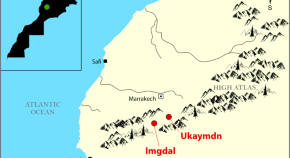Plant Names Encode Tašlḥit Knowledge of Morocco’s High Atlas Landscapes
Authors (first, second and last of 7)

Collection
PhD, Environmental Anthropologist, CNRS researcher at the Laboratory of Eco-Anthropology, Paris, France
PhD, Archaeobotanist, MSCA-R2STAIRS fellow at IPHES Catalan Institute for Human Palaeoecology and Social Evolution, Tarragona, Spain
PhD, Oceanography, ISEM lecturer and researcher at the Institute of Sciences of Evolution (ISEM), Montepelier, France
